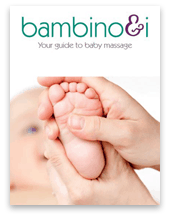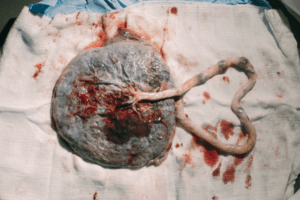
Postnatal Depression (PND) is an illness that usually occurs within the first year after giving birth. This form of depression can happen very gradually or it can come on suddenly. PND is believed to effect 1 in 7 mums and 1 in 10 dads.
PND causes depressive symptoms such as low mood, confusion and withdrawal from others. Whilst most mums will experience ‘Baby Blues’ in the first few weeks after giving birth, PND symptoms are far deeper and long term. If untreated it can have long term effects on the parent, or parents.
PND can also often have a negative effect on a parent’s communication with baby, making bonding and attachment difficult. Creating a strong attachment is important for baby’s development and this is why research shows that when treating PND it is important to focus on parent-infant interaction and not just the depression alone.
This is where baby massage can massively help and here’s how…
Baby massage provides all of the elements essential for parent-baby bonding and attachment by encouraging parent-infant interaction and communications. Baby massage provides an opportunity for eye-to-eye contact, for baby to feel your touch, hear your voice, smell your scent and also gives you time to get to know and understand them. This will allow you to respond to their needs more quickly, making them feel secure and loved.
And then there’s the hormones…
The loving gaze between a parent and baby, and the simple connection with your baby through touch, releases Oxytocin and Serotonin.
Both Oxytocin, known as the ‘love hormone’ and Serotonin, an important chemical neurotransmitter, help you to feel good and more relaxed and can act as an antidote to depressive feelings. Oxytocin also plays a crucial role in bonding and social interaction.
Research has been carried out to assess the impact of baby massage on parents suffering with PND. It shows that after attending baby massage classes, depression and anxiety was reduced, there were fewer sleep problems in the infants, and the quality of interactions between mother and child were improved.
For those parents who are not ready to join in with group classes, or if there are perhaps none on at convenient times or locations, you can take advantage of our online course. Our course is filmed as though you are sat in front of your instructor, replicating the class content and structure in the comfort of your own home. This means you can learn at a time and place that suits you and your little one, building up your confidence at your own pace!
Please do remember that baby massage is just one strategy that can help parents through PND. If you are suffering, speak to your health visitor about any concerns that you may have, and most importantly, remember that you’re not alone! There are many wonderful organisations out there to help you. Please see links below.
If you want to start your online course now, use code WECANDOIT to get 25% off your online course*!

References
Field T, Grizzle N, Scafidi F, Abrams S. Massage therapy for infants of depressed mothers. Infant Behavior and Development; 1996; 13:107–112.
Goldstein-Ferber S. Massage Therapy sleep-wake rhythms in the neonate. In: Field T, editor. Touch and Massage in Early Child Development. New Jersey: Johnson & Johnson Pediatric Institute; 2004. pp. 183–189.
Field T. Postpartum depression effects on early interactions, parenting, and safety practices: a review. Infant Behav Dev. 2010 Feb;33(1):1–6. doi: 10.1016/j.infbeh.2009.10.005.
* Offer valid until 30th June 2018. Cannot be used in conjunction with other offers.





